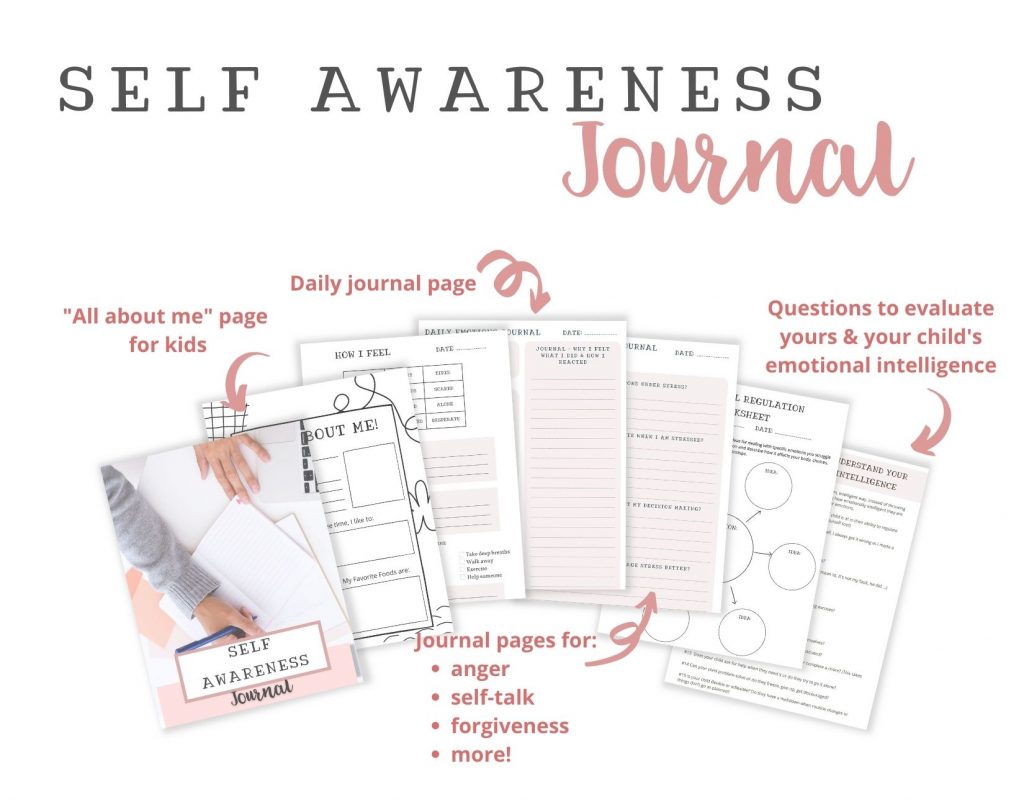How to Improve Mental and Emotional Health

Do you feel mentally and emotionally well? Is your life meaningful and fulfilling? Do you experience joy?
Mental health and emotional health are two concepts that are often used interchangeably. Both involve how we think and feel.
For the sake of keeping things simple, I’m going to deal with these two concepts together.
What does it mean to be mentally & emotionally healthy?
A person who is emotionally and mentally healthy
- has strong positive emotions
- can feel joy and connection with others
- may have a strong sense of belonging
- feels confident in their own abilities
- is able to show empathy for others and understand them
- can think clearly and make sound decisions
- is able to set and accomplish goals in life
- is able to solve problems
- manages stress, anxiety, or depression
- responds appropriately to situations
In summary, mental and emotional health is the overall wellness of how you think, regulate your feelings, and how you behave and relate to others as a result of your thinking and feeling.
Why is mental & emotional health important?
Because healthy people build healthy relationships. Healthy relationships begin with healthy individuals.
We often make the mistake of thinking that because we are Christian, we are emotionally healthy.
But there are so many broken, unhealed people who are sincere Christians, and love God, but their personal lives are a shambles.
How can you improve your mental and emotional health?
Here are some ways you can improve your mental and emotional health.
Do an inventory
Ask God to point out to you where you are unhealthy. Ask Him to show you why you do what you do. Psalm 139:23, 24 says, “Search me, O God, and know my heart: try me and know my thoughts: And see if there be any wicked way in me, and lead me in the way everlasting.”
That word “wicked” also means “way of pain”. Ask God to search out the hidden pain you have in your heart.
“Thus saith the Lord of hosts; Consider your ways” Haggai 1:7. It’s healthy to sit down and do an assessment of your mental and emotional health.
How healthy are you? Download the Emotional Health Assessment below and find out!
Own it and be willing to do the work
Staying stuck in victim mode is not going to help you. People who are stuck in victim mode blame others for things that happen to them, project their issues onto others, and never take ownership of themselves.
The truth is, what happened to you is not your fault, but it is your problem.
God understands it’s not your fault, but He can’t come in and wipe out all your damage. He needs you to take responsibility instead of blaming others and do the work of healing.
Recognise that negative emotions are not bad
Negative emotions are information, not commands. They let you know something is wrong in the soul. Like a thorn in your foot – the pain lets you know it’s there. Pay attention to it. If you ignore it, it will fester and hurt even more.
Instead of suppressing negative emotions, take note of them. You can’t change what you won’t acknowledge. So, while we shouldn’t indulge negative emotions, we should acknowledge them, bring them into the light, so we can deal with them.
Come to God for healing
Jesus’ words, “Come unto Me…and I will give you rest” (Matthew 11:28) are a prescription for the healing of physical, mental, and spiritual ills.
We must come to Him, but we must also surrender ourselves to Him so that He can do the work of healing in us.
As you do this, God will reveal why you do what you do. Then you can give Him permission to heal the deep hurts that cause you to act in destructive or toxic ways. You can uncover the lies you believe as a result of those hurts, and you can get God’s perspective on them.
Be intentional about bringing your mind under the control of the Spirit of God. As you do this, 2 Corinthians 5:17 will become a reality: “Therefore if any man be in Christ, he is a new creature: old things are passed away; behold, all things are become new.”
Build healthy self-worth
We do this, not by looking ourselves in the mirror and saying, “I am beautiful, I am powerful, I am strong, I am…” These I am statements cut God out completely.
But, we can focus on God’s truths about us and state them out loud:
- I am loved by the God of the universe (Jeremiah 31:3).
- I can do all things through Christ (Philippians 4:13).
Build healthy affirmations based on God’s word.
We build healthy self-worth by internalising God’s love for us personally. You can ask Him to show you what you mean to Him. Not generically, but personally. Deeply.
Another way to build self-worth is to develop yourself.
Related: How to improve low self-esteem
Become self-aware
Here’s a simple definition of self-awareness: knowing, at any given time, what you are thinking and feeling, and why you are thinking or feeling it.
This is the foundation of emotional intelligence.
Taking it further – once you know what you’re thinking and feeling, you can process those thoughts and feelings and deal with them in a healthy way.
Self-awareness begins with paying attention to your thoughts and feelings. Observing what goes on inside of you, and why.
You can develop greater self-awareness by journaling or keeping a log of your daily emotions and asking yourself why you feel what you feel.
We must think about what we think about and learn to think in healthy ways. Right thinking is a choice, and feelings will always follow your thinking.
2 Corinthians 10:5 says, “Casting down imaginations, and every high thing that exalteth itself against the knowledge of God, and bringing into captivity every thought to the obedience of Christ.”
Related: How to become self-aware
Purchase the self-awareness journal and understand yourself better!
Find a mentor or counsellor
Finding someone who can help you on your journey to mental and emotional health will speed up the process of healing.
It’s perfectly ok to acknowledge that you are not healthy, and need help to grow in this area.
Just make sure that they come from a Biblical perspective and will lead you to Biblical solutions.
As you build mental and emotional health a few things will happen:
- You will begin to discern unhealthy patterns in others, and understand them and give compassion without a judgmental spirit.
- You will attract healthier relationships.
- You will be more content with yourself.
- You will be happier and more at peace.
- You will avoid drama.
- You will develop healthy boundaries.
- You’ll be able to savour positive emotions.
- You’ll be able to acknowledge negative emotions and move past them without getting stuck.
- Ultimately you’ll be preparing for the stability and emotional health of heaven.
One caveat: When you become mentally and emotionally healthy you may get some resistance. That’s ok. Your mental and emotional health are far more important than what others think.
What does the Bible say about mental and emotional health?
While the Bible doesn’t address mental and emotional health in these specific terms, it does have a lot to say about it.
Below are some verses you can study, but here’s my all-time favourite:
Psalm 131:2 “Surely I have behaved and quieted myself, as a child that is weaned from his mother: my soul is even as a weaned child.”
The word behaved = equalised, adjusted, counterbalanced, composed, yielded
Quieted = quieted self, cease
Weaned = satisfied, mature, able to make decisions
This all speaks of emotional health and stability, with right thinking. It implies the ability to regulate emotions, be quiet, and make mature decisions based on reason.
No matter what life has dealt you, you always have the choice as to how you will think and feel about it.
You can choose to become emotionally and mentally healthy.
Bible verses about mental and emotional health
Psalm 46:10
Philippians 4:6-8
1 Peter 5:7
Romans 12:2
Psalm 23:3
2 Timothy 1:7
John 14:27
Matthew 11:28
Isaiah 41:10
Matthew 6:34
Philippians 4:6
1 Peter 5:7
Luke 5:16
Mark 6:31
Psalm 34:18




Leave A Comment